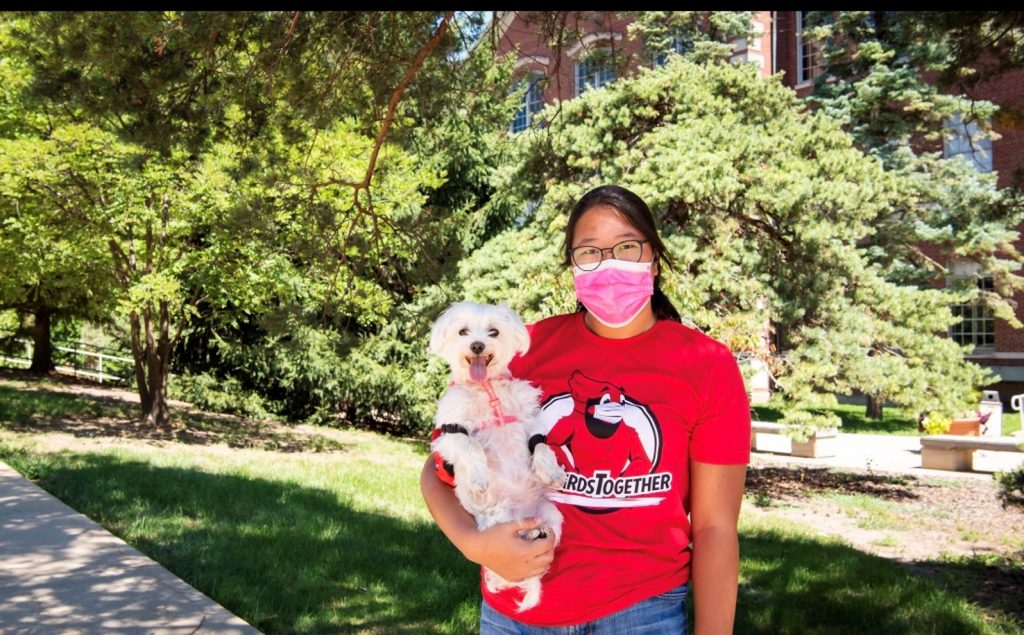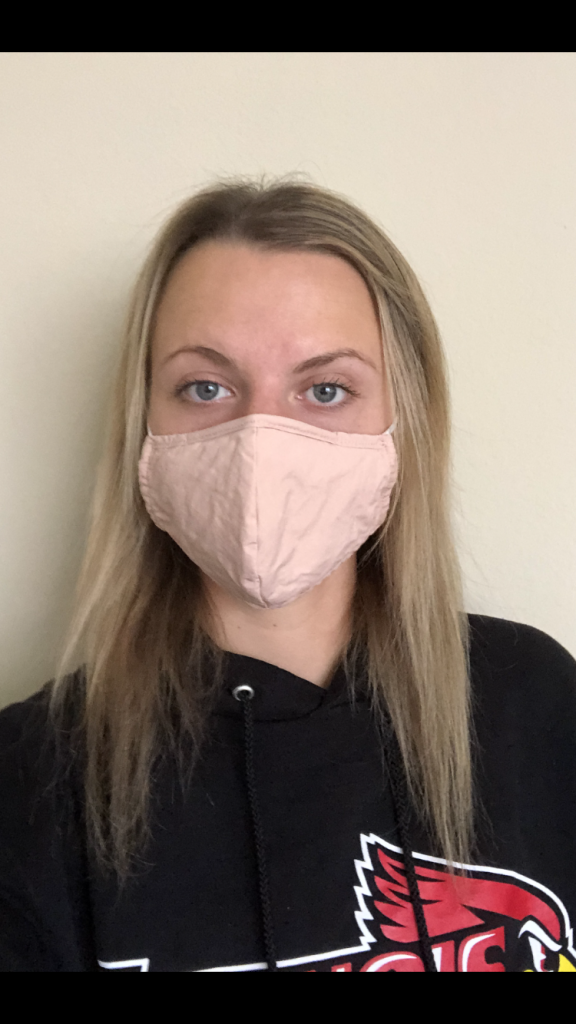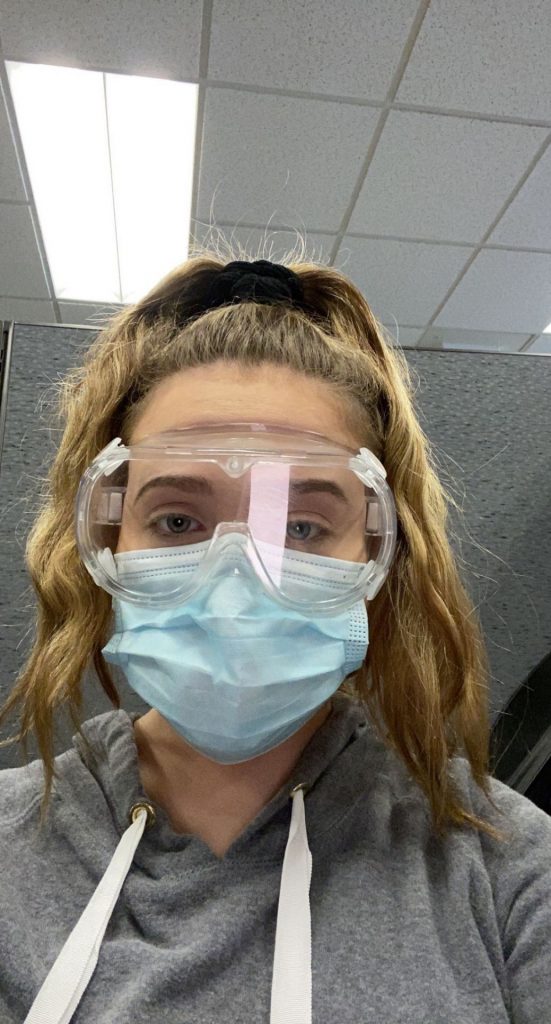“Contact tracing” is a term that the average person might not have been familiar with before 2020 and the beginning of the coronavirus (COVID-19) pandemic. However, students in the Department of Health Sciences at Illinois State University study it every year and were in a unique position to offer assistance as the need for additional contact tracers arose.
Dr. Jacqueline Lanier, associate professor in the Department of Health Sciences, offered to help with ISU’s contact tracing efforts, putting her background in public health to use. Students in the department were offered the chance to be trained as contact tracers, and 11 students are working in this partnership between Illinois State University and the McLean County Health Department (MCHD). Lanier was responsible for training, advising, and supervising the student contact tracers.
“I am thankful that our students rose to the challenge to help during a critical time. It was a great opportunity to gain real life public health experience,” said Lanier. “I’m very proud of the work they have done to help our community.”
Ainsley Murray, a community health promotion major, jumped at the opportunity. “Once the number of positive cases began to rise quickly, I knew I wanted to help our community in whatever way I could. I knew that with what I have been learning in my health promotion classes, I could really help make a difference in this position.”
The goals of a contact tracer are to get information from those that have tested positive, monitor them through their isolation, and contact individuals who could have been exposed. Contact tracers completed several different online trainings, including communication techniques for conducting interviews, making a plan for successful self-isolation or quarantine, and ethics. They also completed a training for the system needed to input the data, Salesforce. Training information is from Johns Hopkins, Illinois Department of Public Health (IDPH), Association of State and Territorial Health Officials (ASTHO), and Mennonite College of Nursing at Illinois State University.
“My interview was, of course, on Zoom!” said Maggie Lane, also a community health promotion major. “It was my first-ever Zoom interview, so it was very interesting to have the opportunity.”
Another community health promotion student, Teresa Wang, shared that one of her passions is disease prevention. “Contact tracing is a huge part of that,” she explained. “I was originally going to apply for a contact tracer position with MCHD, but I felt that I could better help the campus by participating as a contact tracer here. It is great experience for me, and I also feel like I am doing my part to help keep campus safe.”
Lane said that she has already learned a lot in her new role. “After being in this role, I have a greater appreciation for contact tracers, because they are such a vital part of the data collection and epidemiology in order for us to learn more about viruses like COVID-19.”
Of course, these students aren’t only serving as contact tracers while at ISU. They are balancing their new role with everything else on their plate, including classes and student organizations. In addition to learning new skills as a contact tracer, they are constantly learning how to manage time, balance activities, and prioritize action items.
Lane currently holds the role of vice president for two registered student organizations, Eta Sigma Gamma and the Student Wellness Ambassador Team (SWAT). In addition, she has another job at an assisted living center, where she works as a nursing assistant. “I have a pretty packed schedule and trying to balance all of this can be tough at times. In order to stay on top of everything, I plan out every month, week, and day using my planner.”
Wang stressed the importance of trying not to overcommit to things. She is president of SWAT and is also a member of the College of Applied Science and Technology Council. “My education comes first, of course, but I also love being a student advocate. Teaching students about health topics is something that is very important to me. Life is all about finding balance.”
Murray said not to underestimate the importance of taking breaks while trying to complete a task. “I have found that if I can’t focus, I’ll waste more time sitting there trying to force myself to do the task. I’m much better off taking a break and coming back fresh, because screen fatigue is definitely real!”
These students are grateful for the opportunity to learn both from their instructors and also in the field this semester, but being a contact tracer is not without its challenges.
“The most difficult thing about being a contact tracer are the times that we have to contact individuals that are deemed a close contact to someone that has tested positive for COVID-19,” said Murray. “It is a nerve-wracking thing and can be very stressful to hear that you may need to go into quarantine. Ensuring that they understand what this means and making a plan to make sure that they are safe and have the resources they need, can be difficult.”
“One of the more challenging things is getting students to talk to you,” said Wang. “I want to make them understand that they are not in trouble, and that I am just here to help prevent the spread of COVID-19 in the community.”
“Being empathetic and understanding is the most important part,” said Murray.
The students know that their experience as a contact tracer will be vital when it comes to job searching and starting a career after graduation. “I am so grateful for this experience that I have had working as a contact tracer,” said Lane.
“I am learning so much about how to teach people how to be safe and healthy, and keep others safe and healthy,” said Wang.
Learn more about active students and successful alumni of the Department of Health Sciences at healthsciences.illinoisstate.edu.



